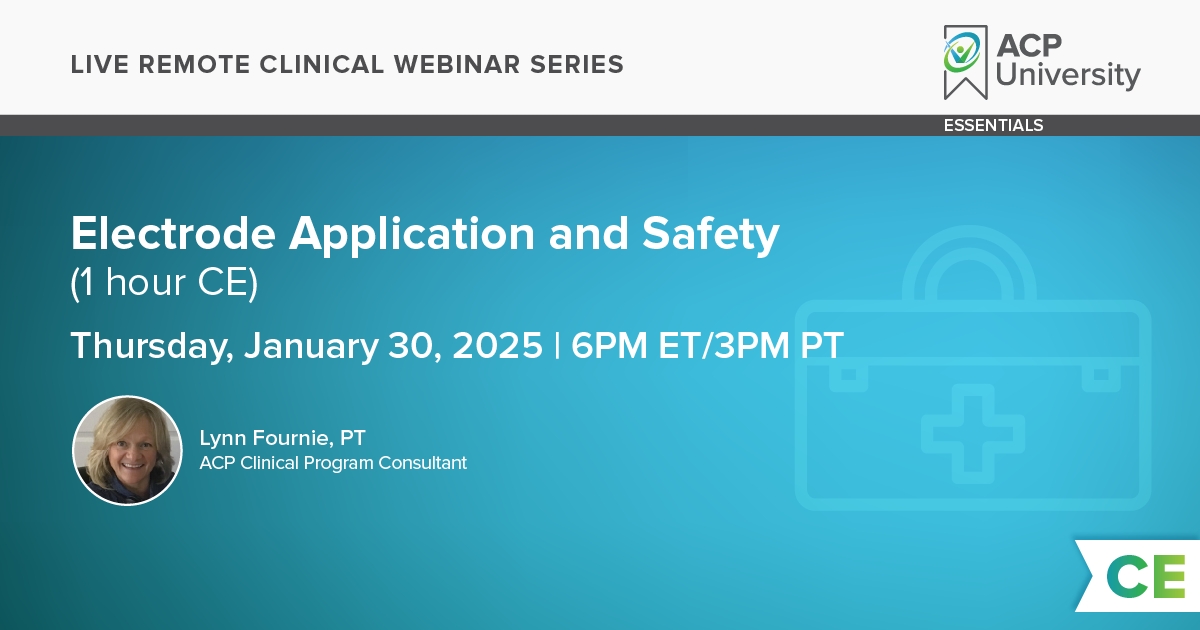Electrode Application and Safety

Date and Time
Location
Virtual Event
About this course:
Through a combination of didactic lecture and lab demonstration, this course provides the attention necessary for clinicians to understand the use and safe application of electrodes for pain management and neuromuscular electrical stimulation.
Instructor:

Enroll Now
Please note: You will not be able to register for webinars without an active
ACP University (LMS) account.
Existing Account
Auto-Enrollment
For the best experience, download the Adobe Learning Manager App and use the below QR code to automatically enroll anytime leading up to the start of the course.

Existing Account Enrollment Request
If you already have an account but can’t scan the QR code,
complete our form and we will add you to the course.
Requests must be received 24 hours prior to the course’s scheduled start.
ACP University Account Request
An active ACP University (LMS) account is required to register for this course. If you don’t have an account, please reach out to your Clinical Program Consultant for your facility-specific learner link. If you don’t recall who your CPC is, reach out to us at [email protected].
Related Events

March 3, 2026
Chronic Heart Failure and Rehab
This two hour intermediate level course for PT/PTAs and OT/OTAs provides instruction on the evidence regarding the clinical benefits of electrical stimulation, aerobic exercise, and resistive exercise to treat patient with chronic heart failure. This course is a part of a series of Accelerated Clinical Practice courses. Through a combination of didactic lecture and lab demonstrations, this course provides the individual attention necessary for clinicians to understand the unique, potential clinical benefits provided by specific therapy interventions.

March 5, 2026
Chronic Obstructive Pulmonary Disease
This one hour CE Course intermediate level course on COPD is part of a series of Accelerated Clinical Practice courses. Through a combination of lecture and lab demonstration, this course provides the individual attention necessary to achieve proficiency in the use and application of neuromuscular electrical stimulation (NMES) for COPD.
